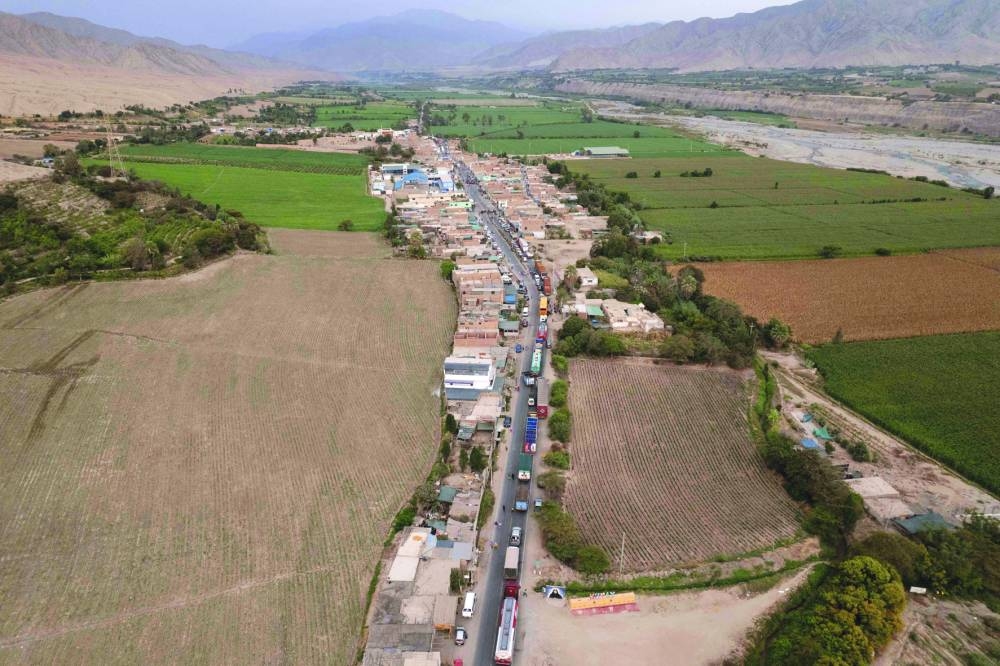Lima braced for a new rally against Peruvian President Dina Boluarte this week as thousands of demonstrators mobilised towards the capital following weeks of deadly unrest.
Protesters from all over the country have been heading to Lima since the weekend in a bid to maintain pressure on authorities, even as a state of emergency was declared to try to maintain order.
At least 42 people have died in five weeks of clashes between protesters and security forces, according to Peru’s human rights ombudsman.
Supporters of ousted president Pedro Castillo – who was arrested and charged with rebellion amongst other offences after trying last month to dissolve parliament and rule by decree – have set up burning roadblocks, attempted to storm airports and staged mass rallies.
Demonstrations took place on Monday in the popular tourist city of Cusco and the southern town of Ilave near Puno, where angry protesters were demanding what many Castillo supporters have been calling for: Boluarte’s resignation, the closure of Congress and fresh elections.
The ultimate destination for many, though, is Lima.
“We’re going to be in the capital to make our protest voice heard,” Jimmy Mamani, an Aymara indigenous leader from the Puno region, told AFP.
Mamani, the mayor of a small village near the border with Bolivia, said peasants from all over Peru had arranged to meet up in Lima for a “peaceful” demonstration.
However, he compared the protest to a massive three-day march that in July 2000 led to the fall of the autocratic regime of Alberto Fujimori.
Smaller protests have already occurred in Lima, including a march through a residential area Sunday night.
More protesters are set to defy a state of emergency in the capital in the coming days.
“It’s not right that the executive cannot listen to our demands, they turn a deaf ear,” said Mamani, who ruled out dialogue with authorities.
At least 3,000 protesters from Andahuaylas in southeastern Peru were heading for Lima on Monday in a caravan of trucks and buses.
And in Cusco province, dozens of peasants were organising themselves to leave for the capital.
The government extended by 30 days a state of emergency from midnight Saturday for Lima, Cusco, Callao and Puno, authorising the military to back up police actions to restore public order.
The order also suspended constitutional rights such as freedom of movement and assembly, according to a decree published in the official gazette.
In protest epicentre Puno, the government declared a night-time curfew for 10 days, from 8pm-4am.
Almost 100 stretches of road remained blockaded on Monday.

Aerial view of a line of vehicles waiting at a blocked road in the village of Humay, Peru, after the police stopped a convoy of members of the Chanca ethnic group heading to Lima to participate in a major demonstration against President Dina Boluarte.
